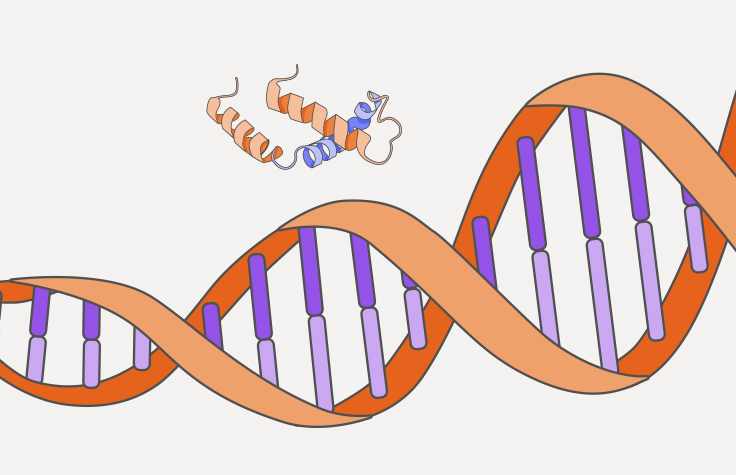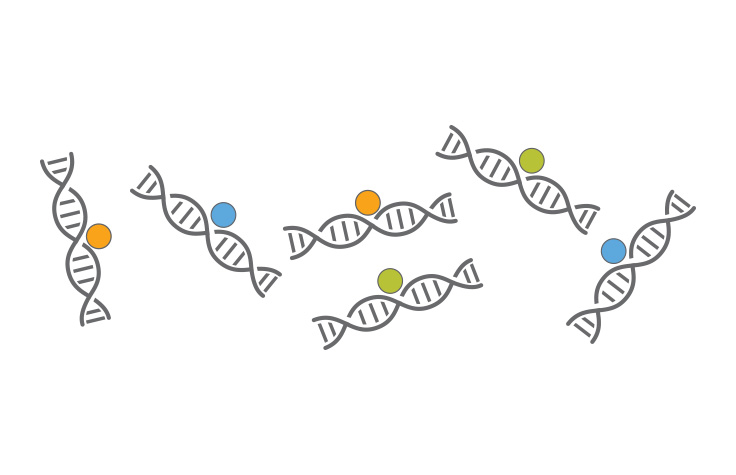DNA-Protein Interaction Analysis
Identify DNA-protein interactions that affect gene regulation

What are DNA-protein interaction studies?
Analysis of DNA-protein interactions provides researchers with insight into regulation events that are critical for many biological processes and disease states. This epigenetic information is complementary to DNA sequencing, genotyping, gene expression, and other forms of genomic analysis.

Analyzing DNA-protein interactions with sequencing
By combining chromatin immunoprecipitation (ChIP) and massively parallel sequencing, ChIP-Seq accurately surveys interactions between protein, DNA, and RNA, enabling the interpretation of regulation events central to many biological processes and disease states. Use ChIP-Seq to identify transcription factor binding sites, track histone modifications across the genome, and narrow in on chromatin structure and function.
Tips and applications for DNA-protein interaction studies used in epigenomic profiling
Optimal cluster density best practices
Watch Illumina scientists discuss how over- and under-clustering can affect your sequencing data. Learn about common clustering issues and ways to prevent them.
How to achieve consistent cluster density
Cluster density has a significant impact on run performance, specifically data quality and total output. Learn how to achieve more consistent cluster densities.
Detect DNA-protein interactions in tumors
Altered transcription factor binding is a common epigenetic pattern in cancer. ChIP-Seq experiments provide researchers with a complete snapshot of DNA regions associated with a protein of interest.